Investing in real estate through tax liens presents a unique opportunity for those looking to diversify their investment portfolios.
Unlike traditional real estate avenues, tax lien investing offers a different angle.
In tax lien investing, we can step into the world of unpaid property taxes and potentially reap significant rewards. Understanding this investment strategy can open doors to high returns with a relatively low entry barrier.
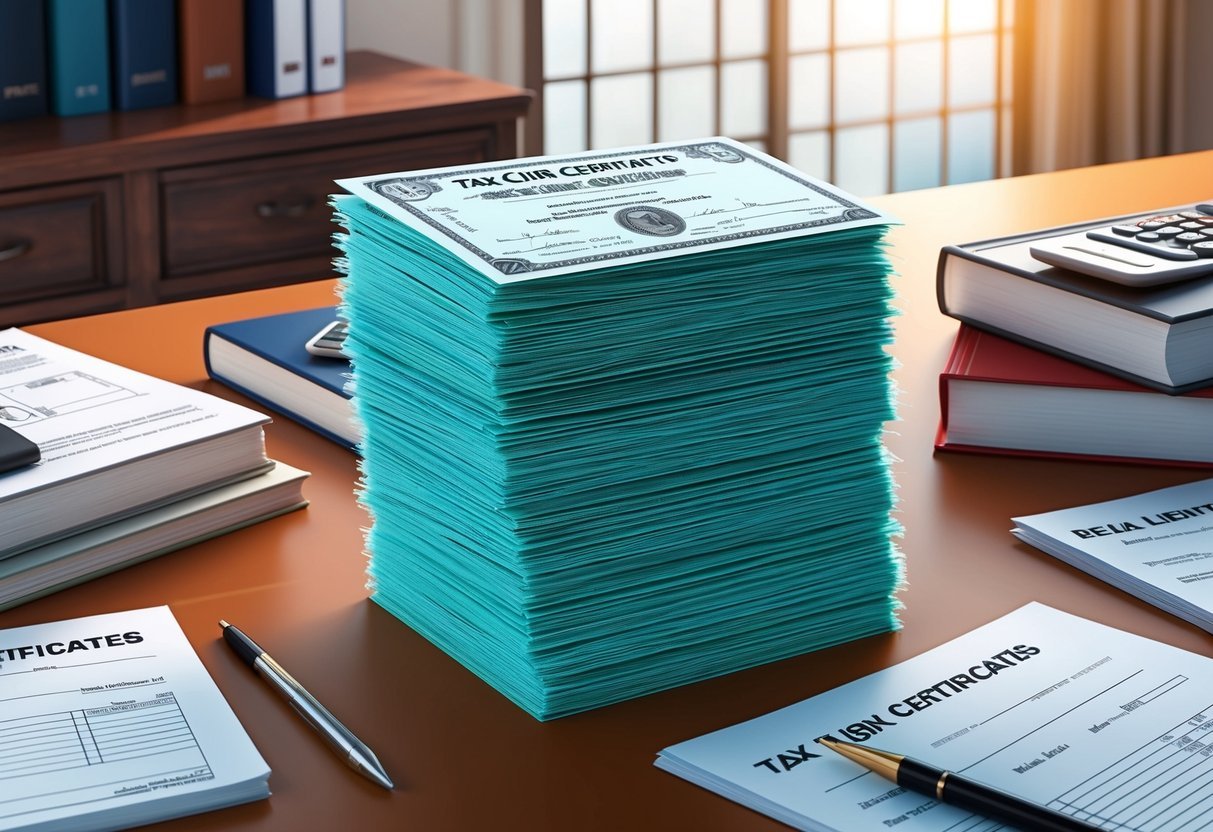
Navigating the nuances of tax lien investing requires careful consideration and informed decision-making.
We’re prepared to explore this investment method diligently, ensuring we consider both potential benefits and inherent risks.
By equipping ourselves with the right knowledge, we can effectively leverage tax lien investing as a valuable addition to our real estate endeavors.
1) Understand the Legal Framework
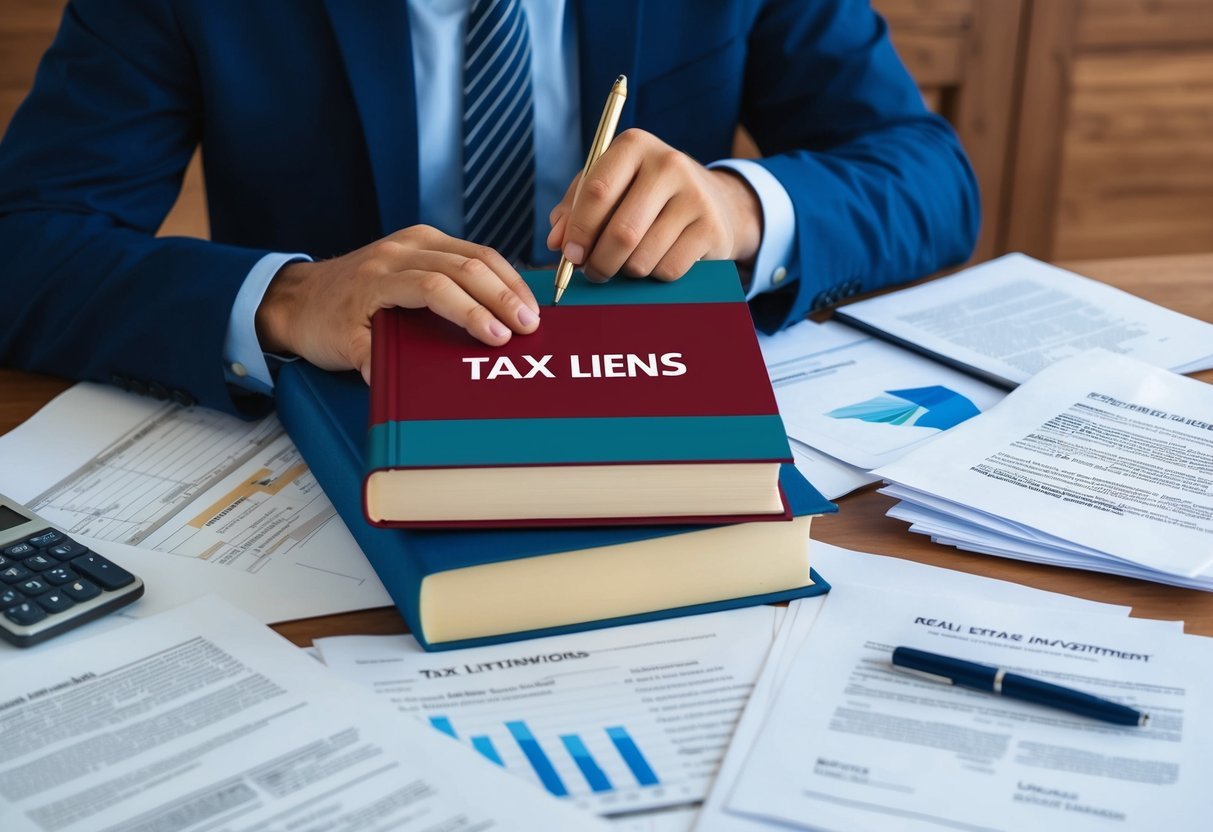
When investing in tax liens, grasping the legal framework is crucial.
Tax lien investing involves a property that has unpaid taxes, allowing us to purchase the lien at government auctions.
We need to know the specific laws and regulations that govern these transactions, as they vary significantly from one jurisdiction to another.
Each state or locality can have different rules about the interest rates, redemption periods, and procedures for acquiring a lien.
It’s our responsibility to research and familiarize ourselves with these legal aspects.
Misunderstanding them can lead to missed opportunities or potential financial losses.
We should also consult with legal professionals who specialize in tax lien investing.
Their expertise can help us untangle complex regulations and avoid costly mistakes.
Additionally, understanding the tax implications of our investments is vital.
By aligning our strategy with legal guidelines, we can make more informed and confident decisions, ultimately protecting our investment and enhancing its success potential.
A comprehensive understanding of the legal framework doesn’t only minimize risks.
It also empowers us to capitalize on opportunities in a structured and secure manner.
2) Research Property Tax Laws
When entering the realm of tax lien investing, comprehending property tax laws becomes essential.
Each state and municipality can have unique rules governing tax liens, affecting everything from interest rates to redemption periods.
We need to familiarize ourselves with these regional differences to make informed investments.
As part of our due diligence, we should examine how liens are created and enforced in our selected areas.
Understanding these local statutes will help us determine potential returns and legal obligations.
This knowledge is crucial for making strategic decisions and estimating timelines for the investments.
We must also be aware of any changes or updates to property laws that could impact our investments.
Staying informed about legislative changes can prevent unexpected hurdles and help us maintain a proactive approach.
This vigilance ensures we are prepared for shifts in the legal landscape.
Consulting with local experts, such as real estate attorneys or experienced investors, can provide valuable insights.
By seeking advice from those familiar with the nuances of property tax statutes, we can gain a deeper understanding and avoid costly mistakes.
Such collaboration enhances our ability to navigate complex legal scenarios effectively.
Reviewing specific tax lien auction procedures in our target areas is another step we should take.
This involves understanding the process of how these auctions are conducted, including any registration requirements and fees.
Armed with this information, we can avoid surprises and position ourselves advantageously during bidding.
Lastly, regularly reviewing government websites or official publications will keep us updated on critical property tax information.
These sources often provide comprehensive details and updates, which are invaluable for ensuring compliance and recognizing profitable opportunities.
Maintaining this awareness allows us to invest with confidence and due diligence.
3) Attend Tax Lien Auctions
Attending tax lien auctions can be a strategic approach to investing in real estate.
These auctions are typically conducted by local governments when property owners fail to pay their due taxes.
Before attending, we should thoroughly research the auction process in our area.
Procedures can vary significantly depending on the state or municipality.
At the auction, we should arrive early to ensure we have ample time for registration and any last-minute clarifications.
It’s also essential to bring the necessary documentation and identification.
Understanding the rules is crucial for success.
Each auction may have different bidding procedures and payment terms, so we must familiarize ourselves with these details.
We should create a bidding strategy in advance to avoid overextending ourselves financially.
Setting a strict budget is crucial, as auction environments can be intense and fast-paced.
It’s beneficial for us to review the list of properties available for auction.
Prioritize those that align with our investment goals and have potential for profitability.
Networking with other investors at these events can provide valuable insights and tips.
Fellow attendees might share their experiences or strategies that could enhance our approach.
Finally, while it’s exciting to participate, we must remember to exercise caution.
Due diligence is key; ensure we’re aware of any potential risks associated with purchasing tax liens on specific properties.
4) Evaluate Property Value

When investing in real estate through tax liens, assessing the property’s value is crucial.
Understanding the potential worth of any property helps us make informed decisions.
This information impacts our investment’s profitability and ensures it aligns with our financial goals.
First, we must research the neighborhood to understand market trends.
Analyzing sales data of comparable properties gives us insight into the property’s market value.
It helps identify if a property is undervalued or overpriced.
Another factor to consider is the property’s condition.
A detailed inspection can reveal potential repair costs that might affect the property’s resale value.
We should account for these costs when evaluating an investment’s overall profitability.
Additionally, property taxes and any existing liens must be factored into our evaluation.
These can impact the total cost of the investment.
Knowing these details helps avoid unpleasant surprises and allows for a more accurate assessment.
We should also be aware of any potential legal restrictions or zoning issues.
These can limit future development or uses of the property.
Consulting with professionals, such as real estate agents or tax attorneys, can provide valuable insights in this area.
Understanding local demand is another critical aspect.
Properties in high-demand areas often yield better returns.
We should consider factors like employment rates, amenities, and school districts, which can influence property desirability.
Lastly, assess how long a property has been on the market.
If it has been listed for a long time, there might be underlying issues affecting its value.
This information is crucial for making informed investment decisions.
5) Perform Due Diligence

When venturing into real estate through tax liens, due diligence is a critical step.
Without it, we risk investing in properties that might not meet our expectations or, worse, become financial burdens.
We need to thoroughly research the property’s background.
This includes confirming the property’s legal status, any outstanding liens, or encumbrances, and understanding local tax lien laws.
Each state may have different regulations that influence our investment strategy.
Visiting the property is essential.
Seeing its condition firsthand can reveal issues not evident on paper.
This visit allows us to gauge the neighborhood, assess property value, and consider any renovation costs that might be necessary.
Consulting with professionals such as real estate agents, tax lien lawyers, and property inspectors can provide valuable insights.
Their expertise helps us make informed decisions, minimizing the risk associated with our investment.
We should also review the property’s tax history and ensure the tax lien we are interested in is the primary lien.
Secondary liens might not offer the same level of security.
Confirming its priority gives us a better chance of protecting our investment.
Proper analysis of the financial aspects is vital.
Calculating potential returns versus risks helps in making prudent choices.
We must assess the likelihood of the property owner redeeming the lien and the time frame for potential property acquisition through foreclosure.
Performing due diligence protects our interests and helps us identify promising opportunities.
Investing time and resources in this process is a sensible approach to secure our investments in tax liens, ensuring we make the most of our real estate ventures.
6) Secure Financing Options
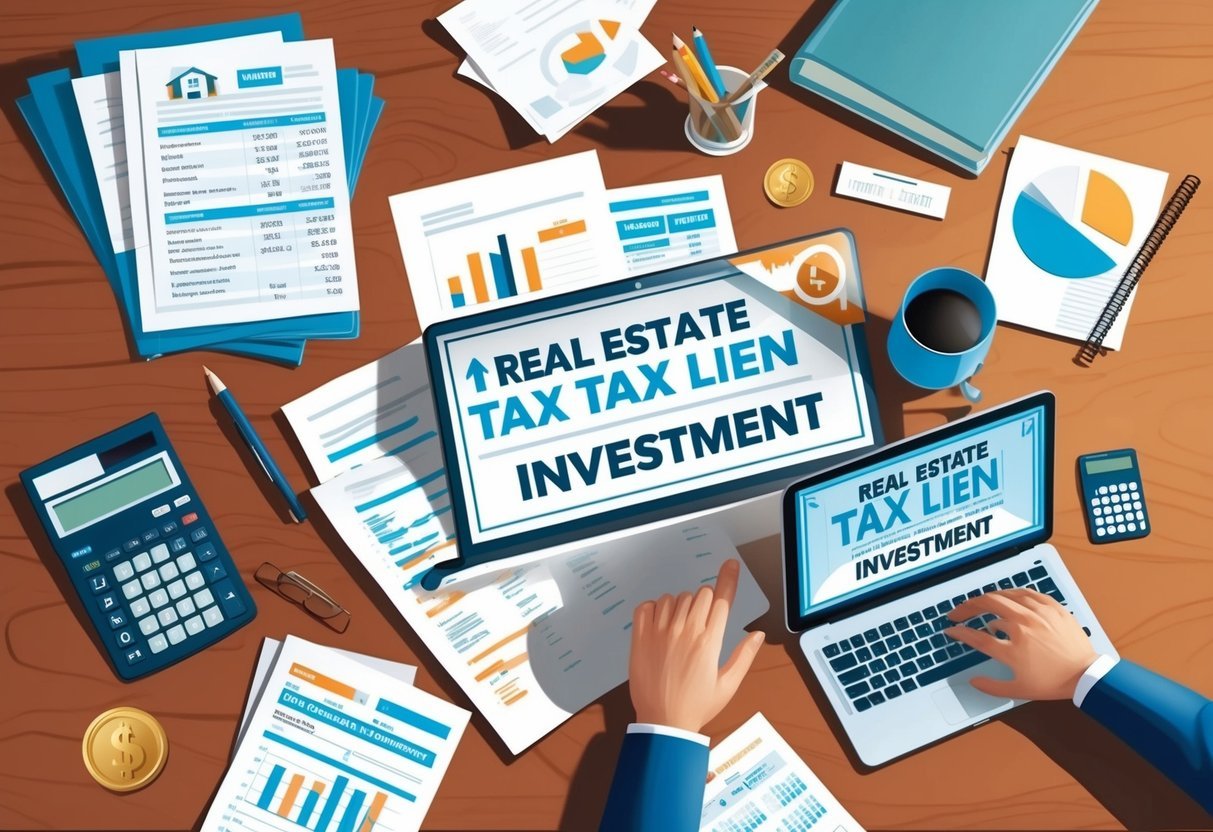
When investing in real estate through tax liens, securing financing is a crucial step.
We need to explore various financing options to ensure we have the necessary funds.
Traditional bank loans may not always be available or ideal, given the unique nature of tax lien investments.
Instead, alternative funding sources can be more suitable.
Private lenders are often a valuable resource.
These lenders may offer more flexibility compared to banks.
Establishing relationships with private lenders early on can be beneficial for those unpredictable opportunities.
Another option is utilizing a self-directed IRA, which allows us to invest in tax liens using retirement funds without facing tax penalties.
Home equity lines of credit (HELOCs) can also be a practical choice.
By leveraging the equity in our existing properties, we might be able to secure the capital needed for purchasing liens.
It’s important to carefully consider the terms and interest rates associated with HELOCs to avoid overextending our finances.
Partnering with other investors may also be advantageous.
Pooling resources with others can open doors to larger deals and diversify our investment risks.
When forming partnerships, it’s essential to clearly outline and agree upon each party’s responsibilities to avoid misunderstandings.
Exploring crowdfunding platforms is another way to finance tax lien investments.
These platforms can connect us with numerous small investors who are interested in contributing towards specific projects.
This approach can provide the funds needed while allowing for shared investment risks.
Each financing option comes with its own set of conditions, risks, and potential rewards.
It’s crucial for us to thoroughly evaluate each option and align it with our investment strategy and risk tolerance.
7) Network with Experienced Investors

Connecting with seasoned investors is crucial for those of us looking to succeed in tax lien investing.
By building these relationships, we can gain valuable insights that are not easily found in books or online resources.
Networking offers us the chance to learn from the successes and mistakes of others.
This can be a huge time-saver.
We should consider joining local investment clubs or associations focused on tax liens.
These groups often host meetings, seminars, or conferences where we can meet other investors and exchange ideas.
Online forums and social media groups also provide excellent platforms to connect with experienced individuals.
Here, we can ask questions, share experiences, and even collaborate on investment opportunities.
It’s important for us to approach these interactions with an open mind and be willing to learn.
Many experienced investors are happy to offer guidance to those genuinely interested in growing their knowledge.
Analyze Redemption Periods
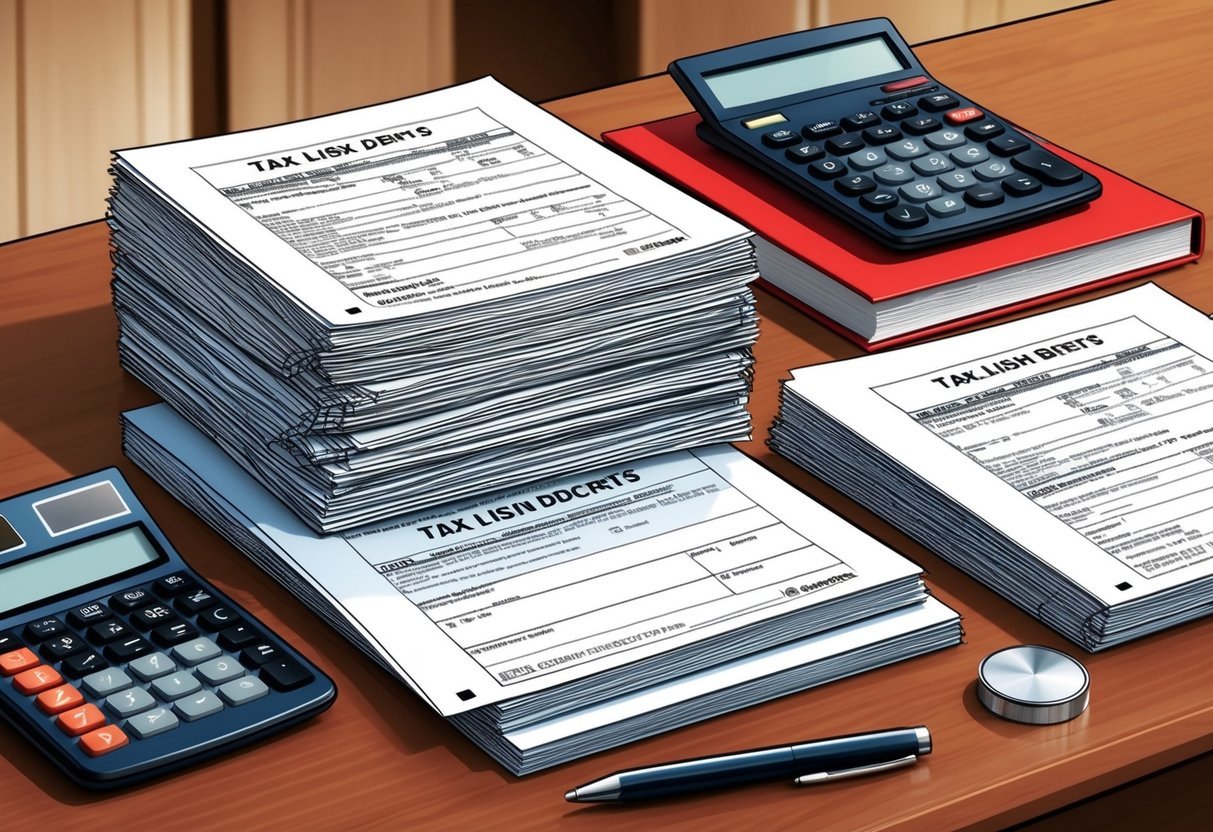
When investing in tax liens, understanding redemption periods is crucial.
These periods vary by state and dictate how long a property owner has to repay the debt before we can potentially take ownership.
In some states, the redemption period is as short as a few months, while in others, it can extend to several years.
We must carefully assess the length of the redemption period to evaluate the investment’s potential timeline.
Shorter redemption periods may allow us to realize returns more quickly, but they could also mean a higher level of competition at auctions.
Longer redemption periods may require more patience and carry unique risks.
Researching specific state laws regarding redemption periods helps us identify the best markets for our investment strategy.
We should consider whether the redemption period aligns with our financial goals and timelines.
By doing so, we can strategically select where to invest based on how soon we expect to recoup our investments.
It’s essential to account for the interest rates associated with these periods, which can significantly impact our overall returns.
Some states offer higher interest rates during longer redemption periods, potentially making them more attractive.
Balancing the redemption period with the interest rate allows us to optimize our strategies and maximize profits.
Understanding Tax Liens
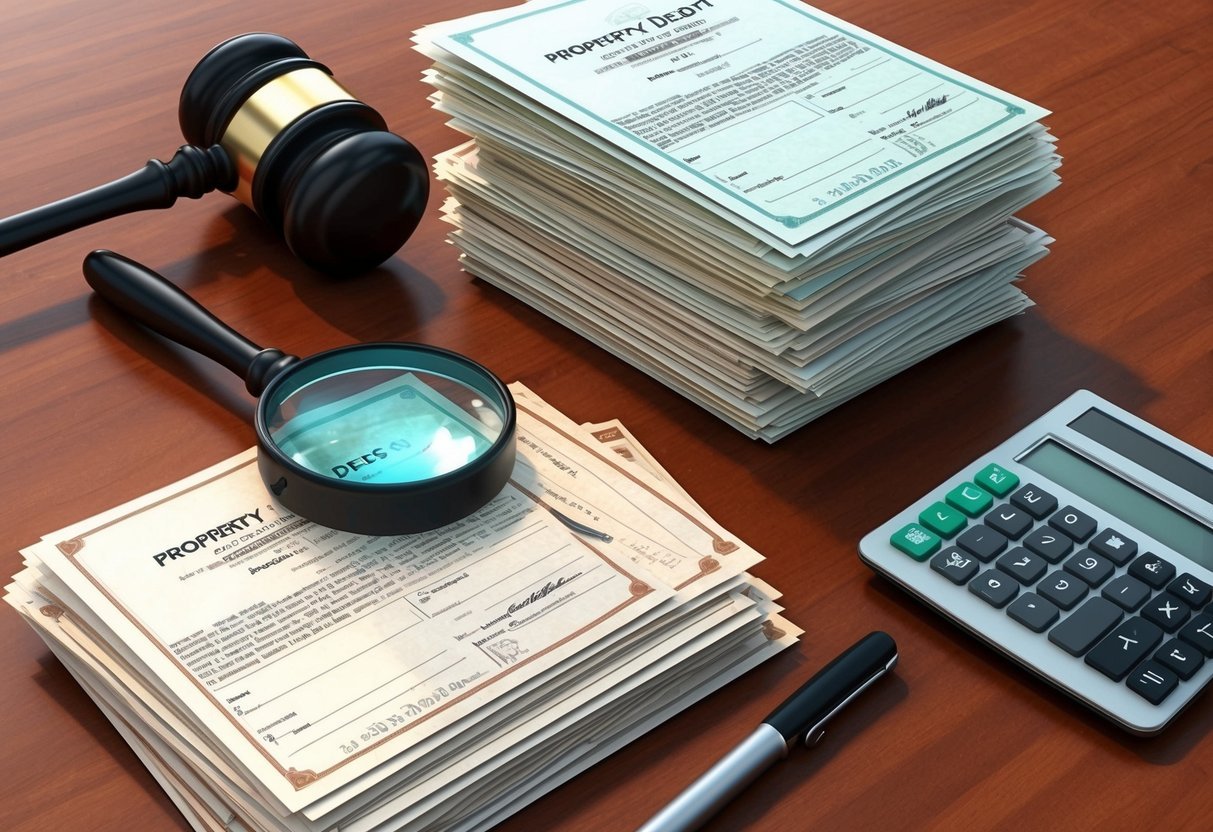
Tax liens provide an opportunity for investors to earn returns on unpaid property taxes.
They offer a unique path within real estate investing, distinguishing themselves through specific processes and potential outcomes.
What Is a Tax Lien?
A tax lien is a legal claim imposed by a government on a property when the owner fails to pay taxes owed.
This claim ensures that the government gets paid before any other debts if the property is sold.
In an auction, investors can purchase the lien, effectively stepping into the shoes of the government to collect the due taxes, plus interest.
The lien does not convey ownership of the property itself but offers the right to collect the delinquencies.
If the property owner eventually pays the owed amount along with interest, the lienholder earns a return on their investment.
If not, the lienholder may have the ability to initiate foreclosure proceedings to recover the investment.
This mechanism makes tax liens a potentially secure investment, as they are backed by real estate.
How Tax Liens Differ From Other Real Estate Investments
Tax lien investing is distinct from traditional real estate investments.
Unlike purchasing property directly, investing in tax liens involves acquiring a financial claim tied to unpaid taxes.
This means lower capital outlay upfront, as the investor is not actually buying property.
Another key difference lies in risk and reward dynamics.
Tax liens can offer high returns through interest payments, often exceeding returns from rental income or property appreciation.
However, the process requires understanding local legislation, as rules vary by jurisdiction and determine the interest rates and procedures for foreclosure.
The timeline for tax lien investments also differs.
These investments can lead to quicker returns compared to waiting for property value appreciation or rental income, but they require patience during the redemption period, when property owners have the opportunity to pay off their debts.
This investment avenue suits those seeking a balance between risk and potential profitability, willing to navigate legal complexities.
Legal Considerations
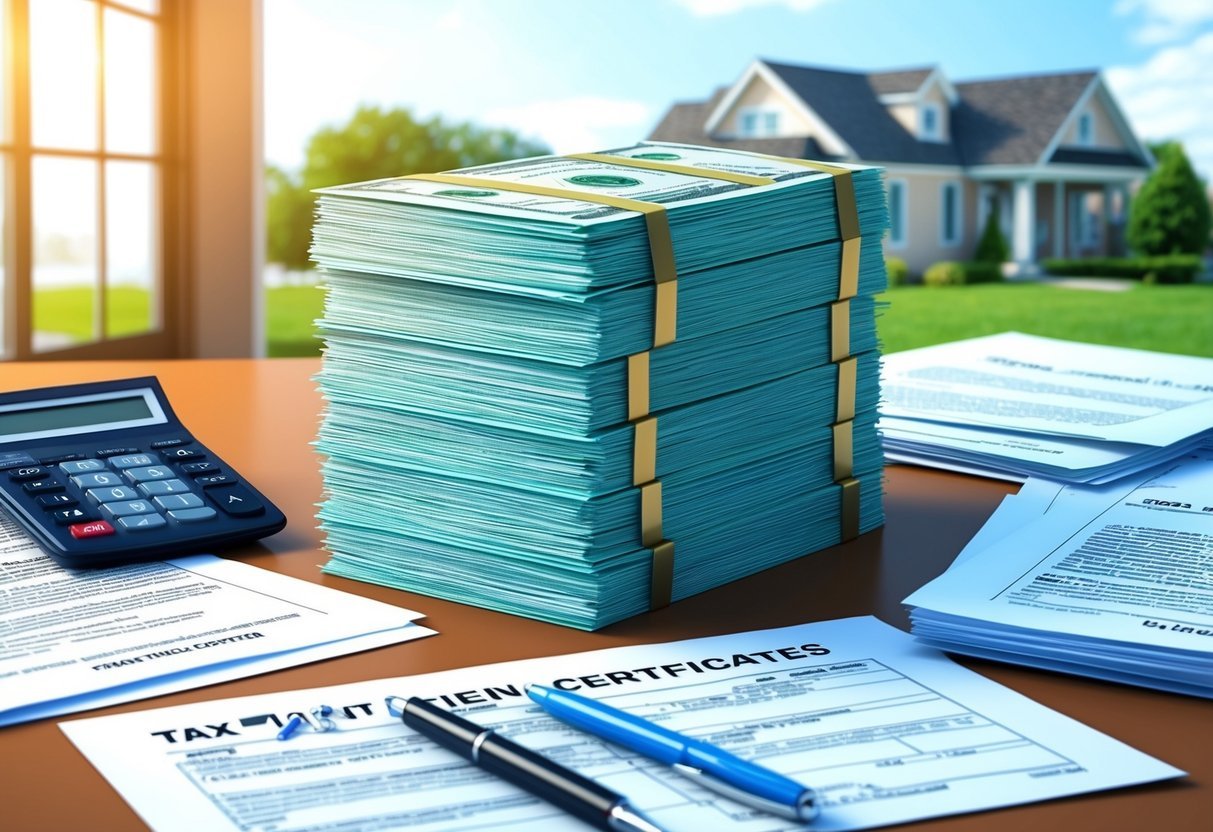
When investing in tax liens, it’s crucial to navigate the legal landscape with care.
We must be aware of varying state regulations and conduct thorough due diligence to protect our investments.
State-Specific Regulations
Tax lien laws differ considerably from one state to another.
Understanding these differences is essential for successful investing.
Each state sets its own rules on interest rates, redemption periods, and the process for acquiring a tax lien.
For example, some states might allow interest rates up to 36%, while others cap them at lower percentages.
It’s also important to note which states offer tax liens versus tax deeds and how the transition from lien to deed is managed.
This typically involves a legal process that requires compliance with state-specific guidelines.
We should consult with legal experts familiar with each state’s regulations to ensure compliance and avoid pitfalls.
Due Diligence Requirements
Due diligence forms the backbone of any investment, especially in tax liens.
We should begin by verifying the property’s worth to ensure it’s more than just a stake against unpaid taxes.
This includes checking for existing claims or liens on the property, potential environmental issues, and structural conditions.
Reviewing local tax records and the current status of property taxes provides clarity on the investment’s viability.
It’s also wise to assess neighborhood market conditions to project future property value.
Skipping this critical step could lead to unforeseen liabilities and reduced returns.
Strategic research helps in making informed decisions, minimizing risks, and maximizing potential returns.
Financial Implications
Navigating tax lien investments involves understanding both the potential gains and the challenges we might face.
It’s crucial to weigh the anticipated returns against the risks involved, ensuring an informed investment strategy.
Return on Investment
Investing in tax liens can offer attractive returns.
We acquire these liens by paying off the property owner’s owed taxes, and in return, we can earn interest rates that often exceed traditional investment vehicles.
This interest can accumulate significantly over time, benefiting our financial growth.
The specific return rate varies by county and state due to differing regulations.
Places like Florida may offer up to 18% annual interest.
Additionally, since these liens are backed by law, they ensure a high degree of reliability.
If the property owner redeems the lien, we secure the interest payment.
If not, we could potentially acquire the property itself via foreclosure, which often leads to substantial equity gains.
Risks and Challenges
Despite the promising returns, tax lien investing carries notable risks.
One major challenge is the potential for the property to be in poor condition, which can diminish its market value.
We must also navigate legal complexities, which can be intricate and time-consuming if foreclosures are involved.
Overbidding in auctions is another risk.
When adrenaline runs high, it’s easy to exceed our budget, which could negate potential returns.
Additionally, tax laws and investment regulations can change, impacting our strategies and expectations.
Therefore, conducting thorough due diligence is essential in minimizing financial pitfalls and making prudent investment decisions.
Frequently Asked Questions
In our exploration of tax lien investing, we address common questions to guide potential investors.
We’ll discuss starting points for beginners, the pros and cons, risks, buying locations, key considerations, and varying state laws.
How can beginners start investing in tax lien certificates?
For those new to tax lien investing, gaining a solid understanding of local property tax laws is crucial.
We recommend attending tax lien auctions to observe the process before participating.
Networking with experienced investors and consulting with a tax advisor or real estate attorney can provide valuable insights.
What are the advantages and disadvantages of tax lien investing?
Investing in tax liens can offer secured returns with interest rates that vary from state to state.
However, it requires patience and careful property assessment, as there’s no guarantee of immediate profit.
The process can be complex, with additional legal and administrative requirements.
What are the potential risks involved in investing in tax liens?
Several risks involve tax lien investments, such as the possibility that a property owner pays off the lien, thus denying ownership transition, or unexpected property issues like poor condition or environmental concerns.
It’s crucial to evaluate the potential for these situations during due diligence.
Where can investors purchase tax lien certificates?
Tax lien certificates are typically available at auctions organized by local government entities.
These auctions may be held in person or online, depending on the jurisdiction.
We find it beneficial to research specific counties or states to understand their auction schedules and requirements.
What factors should be considered before investing in tax liens?
Before investing, it’s important to evaluate the property value, potential return rates, and any outstanding issues related to the property.
Understanding the priority of the lien and any other claims against the property ensures informed decision-making.
Analyzing market trends and local economic conditions can also aid in the investment process.
How do the tax lien laws vary from state to state?
Tax lien laws differ significantly across states.
These variations include differences in the interest rates offered, redemption periods, and handling of lien foreclosures.
Familiarizing ourselves with the specific laws of our target state helps in strategizing and optimizing our investment approach.

